
Ensanche: Bilbao's Modern Heartbeat
Ensanche, or 'El Ensanche', is the lively, modern core of Bilbao, Spain, where the city's past and present seamlessly blend. This neighborhood, a testament to Bilbao’s 19th-century expansion, is characterized by its wide boulevards, elegant architecture, and bustling streets. It’s a place where history and contemporary culture converge, offering a vibrant and dynamic atmosphere for visitors. Strolling through Ensanche, you’ll encounter a mix of grandiose 19th-century buildings and modern structures, creating a visually captivating urban landscape. This area is home to some of the city’s most prestigious museums, including the renowned Guggenheim Museum, which stands as a symbol of Bilbao’s cultural renaissance. Art enthusiasts will also appreciate the Fine Arts Museum, housing an extensive collection of Spanish and European masterpieces. Ensanche’s streets are lined with an array of chic boutiques, upscale restaurants, and cozy cafés, making it a haven for shopping and dining. The neighborhood’s culinary scene is diverse, offering everything from traditional Basque pintxos to international cuisine. Don’t miss the chance to explore the local markets, such as the Mercado de la Ribera, where you can savor fresh, local produce and artisanal goods. As night falls, Ensanche transforms into a lively hub of nightlife, with numerous bars and clubs providing a vibrant atmosphere for evening entertainment. Whether you’re interested in cultural experiences, shopping, dining, or simply soaking in the local ambiance, Ensanche offers a rich and varied experience for every visitor.
Local tips in Ensanche
- Visit the Guggenheim Museum early in the morning to avoid the crowds and enjoy a peaceful experience.
- Take a leisurely walk along the Gran Vía, the main shopping street, to explore a variety of boutiques and department stores.
- Try the local pintxos at one of the many bars for an authentic Basque culinary experience.
- Use public transportation or rent a bike to easily navigate through the neighborhood and explore nearby areas.
- Check out the local events calendar, as Ensanche often hosts street festivals, art exhibitions, and cultural performances.
Ensanche: Bilbao's Modern Heartbeat
Ensanche, or 'El Ensanche', is the lively, modern core of Bilbao, Spain, where the city's past and present seamlessly blend. This neighborhood, a testament to Bilbao’s 19th-century expansion, is characterized by its wide boulevards, elegant architecture, and bustling streets. It’s a place where history and contemporary culture converge, offering a vibrant and dynamic atmosphere for visitors. Strolling through Ensanche, you’ll encounter a mix of grandiose 19th-century buildings and modern structures, creating a visually captivating urban landscape. This area is home to some of the city’s most prestigious museums, including the renowned Guggenheim Museum, which stands as a symbol of Bilbao’s cultural renaissance. Art enthusiasts will also appreciate the Fine Arts Museum, housing an extensive collection of Spanish and European masterpieces. Ensanche’s streets are lined with an array of chic boutiques, upscale restaurants, and cozy cafés, making it a haven for shopping and dining. The neighborhood’s culinary scene is diverse, offering everything from traditional Basque pintxos to international cuisine. Don’t miss the chance to explore the local markets, such as the Mercado de la Ribera, where you can savor fresh, local produce and artisanal goods. As night falls, Ensanche transforms into a lively hub of nightlife, with numerous bars and clubs providing a vibrant atmosphere for evening entertainment. Whether you’re interested in cultural experiences, shopping, dining, or simply soaking in the local ambiance, Ensanche offers a rich and varied experience for every visitor.
Iconic landmarks you can’t miss
Café Iruña
Experience the heart of Bilbao at Café Iruña, where traditional tapas and a welcoming atmosphere await every visitor.
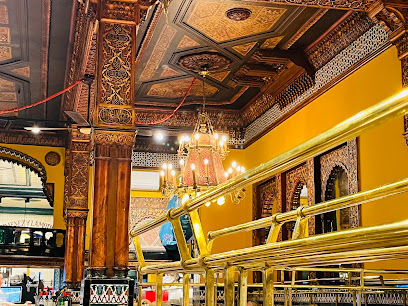
El Globo tavern
Discover the vibrant flavors of Basque cuisine at El Globo Tavern, a must-visit tapas bar in the heart of Bilbao's Abando district.
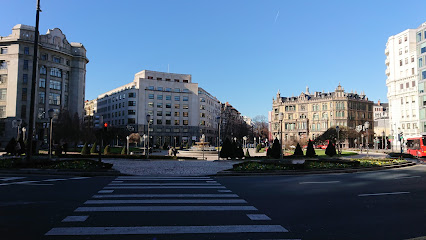
La Viña del Ensanche
Experience authentic Basque cuisine at La Viña del Ensanche, a lively restaurant in Bilbao known for its delightful tapas and warm atmosphere.
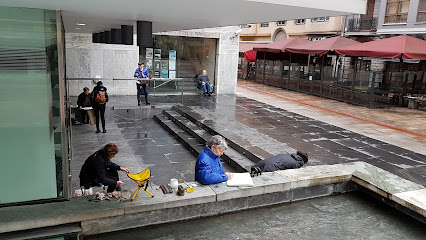
Restaurante Abando
Experience the rich flavors of Basque cuisine at Restaurante Abando, a culinary gem in the heart of Bilbao's Abando district, where tradition meets modern dining.
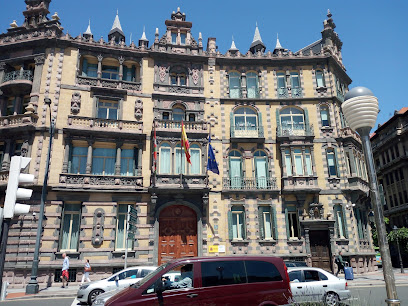
ETXANOBE
Discover Etxanobe, a premier fine dining experience in Bilbao, where Basque flavors meet innovative culinary artistry in a stunning setting.
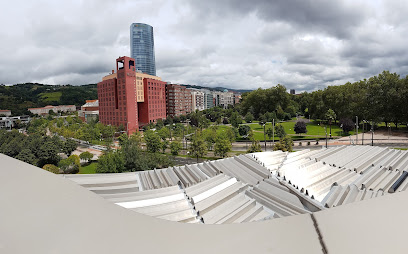
Casa Leotta - Ajuriaguerra
Experience authentic Italian cuisine at Casa Leotta in Bilbao, home to delicious pizzas and a warm, inviting atmosphere.
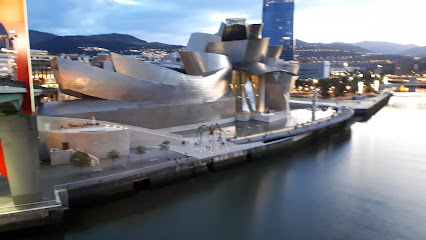
Ágape jatetxea
Discover the exquisite flavors of Mediterranean cuisine at Ágape Jatetxea in Bilbao, where delightful dishes and a cozy atmosphere await.
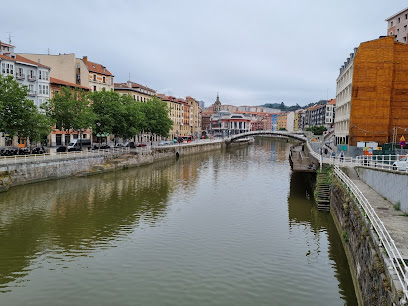
Turismo Bulegoa Bilbo Bizkaia
Explore Bilbao like a local at Turismo Bulegoa Bilbo Bizkaia, your gateway to the city's culture, attractions, and hidden gems.
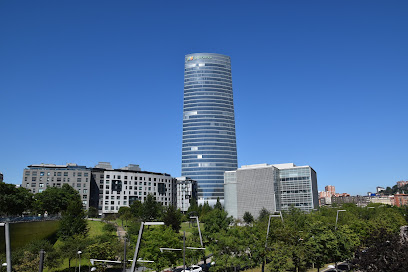
La Gavilla Bilbao
Experience the rich flavors of Basque cuisine at La Gavilla Bilbao, where traditional grilling meets modern culinary artistry in a vibrant setting.
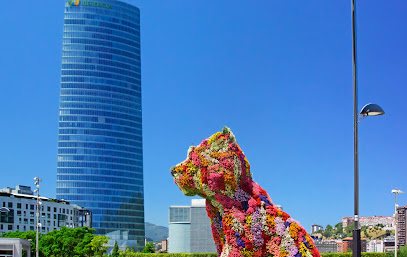
Casa Rufo
Discover Casa Rufo, the heart of authentic Spanish grilling in Bilbao, where every dish is a celebration of local flavors and culinary tradition.
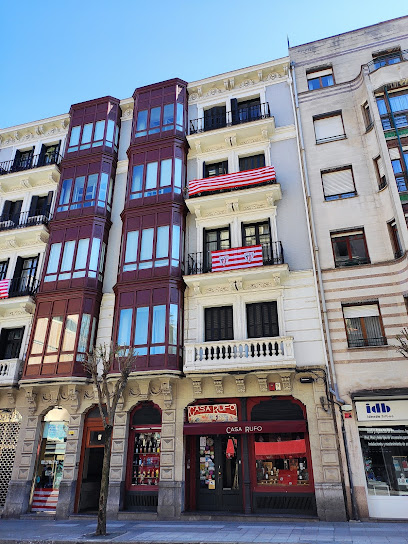
Jardines Berria
Experience the vibrant flavors of Basque cuisine at Jardines Berria, a charming restaurant and café in the heart of Bilbao's Abando district.
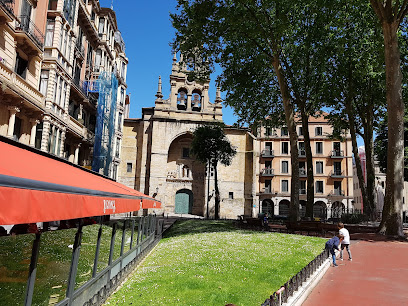
Promenade Vermutería y Tapería
Explore the culinary heart of Bilbao at Promenade Vermutería y Tapera, where tapas and vermouth create an unforgettable dining experience.
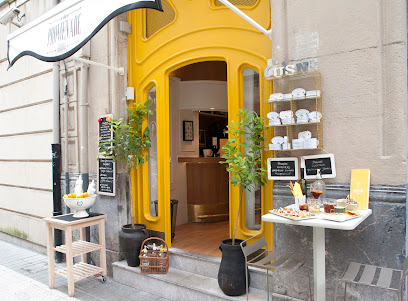
Kunel Donburi Bar
Experience authentic Japanese donburi at Kunel Donburi Bar, a hidden gem in Bilbao's Ibaiondo district, where flavor meets tradition.
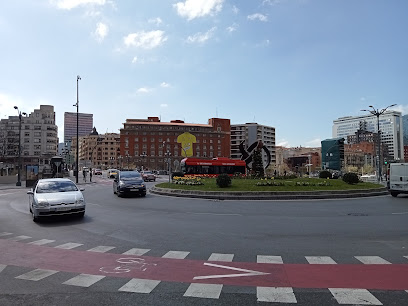
Restaurante Cubita Bilbao
Discover the authentic flavors of Basque cuisine at Restaurante Cubita Bilbao, where tradition meets modern culinary artistry.
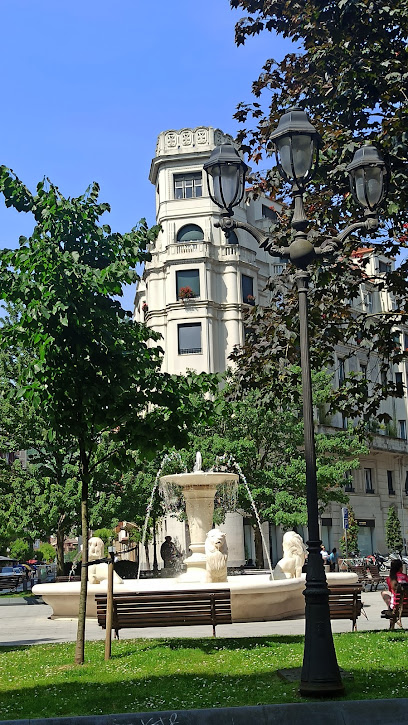
La Bodega de Ola
Experience the authentic taste of Basque cuisine at La Bodega de Ola in the heart of Bilbao's historic Ibaiondo district.
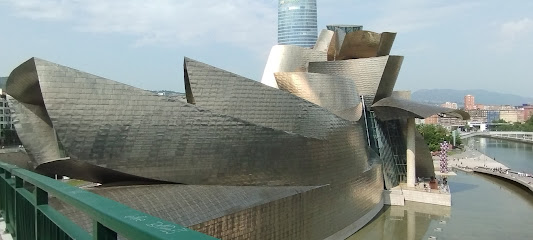
Unmissable attractions to see
Puppy
Experience the enchanting Puppy sculpture by Jeff Koons in Bilbao, a colorful floral masterpiece that symbolizes creativity and joy in the heart of the city.
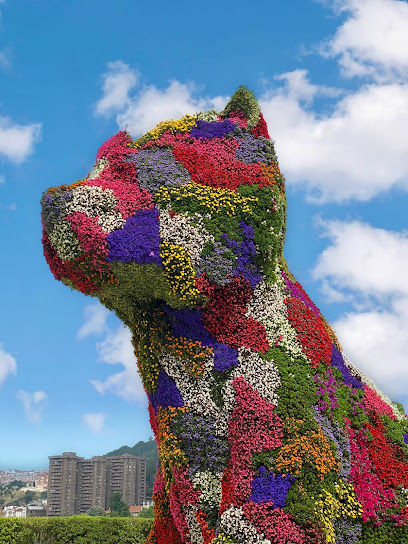
Txabarri Jauregia
Explore the architectural marvel of Txabarri Jauregia, a historic palace in the heart of Bilbao, showcasing the rich cultural heritage of the Basque Country.
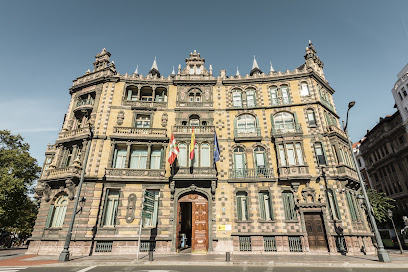
Bilboko Pasoen Museoa
Immerse yourself in the captivating world of Basque puppetry at Bilboko Pasoen Museoa, a unique cultural treasure in the heart of Bilbao.
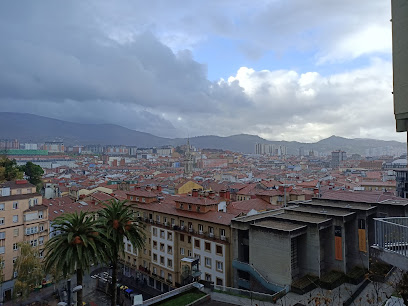
Fachada singular
Explore the captivating Fachada Singular in Bilbao, an iconic architectural masterpiece that showcases the city's rich history and vibrant culture.
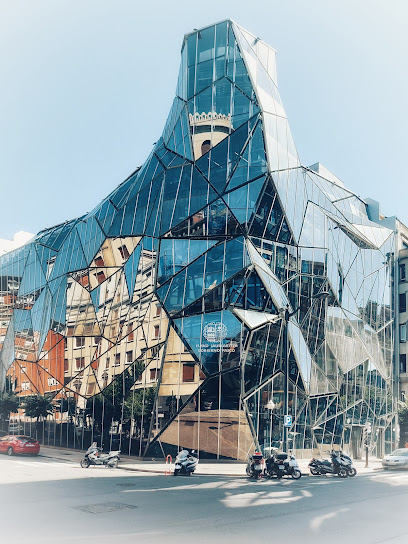
Essential places to dine
El Globo tavern
Experience authentic Basque cuisine at El Globo Tavern - where delicious tapas meet vibrant atmosphere in the heart of Bilbao.
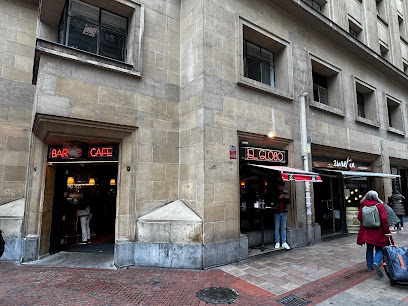
La Viña del Ensanche
Discover authentic Basque cuisine at La Viña del Ensanche - where tradition meets innovation in every delicious bite.
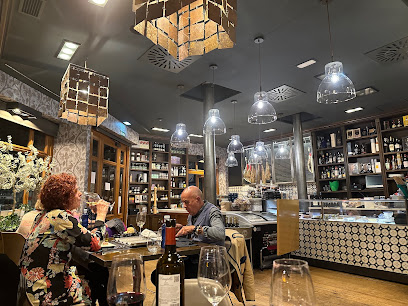
Restaurante Sua San
Experience authentic Basque cuisine at Restaurante Sua San in Bilbao—perfect for breakfast, brunch, or a casual meal with friends.
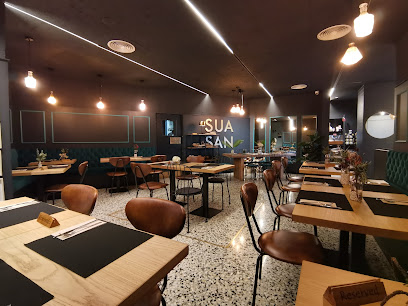
Restaurante Abando
Experience authentic Basque cuisine at Restaurante Abando in Bilbao - where tradition meets modern culinary excellence.
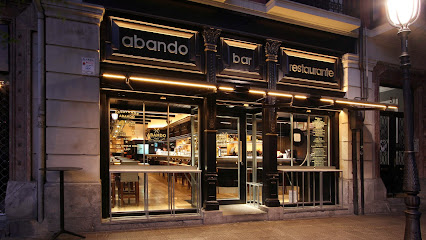
Bilbao Berria Ledesma
Experience the best of Basque cuisine at Bilbao Berria Ledesma – where tradition meets innovation in every bite.
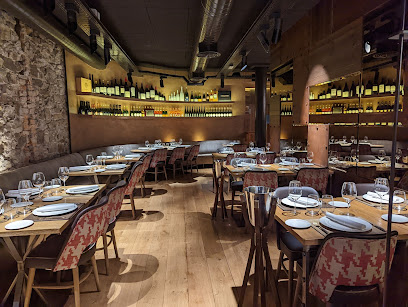
Ein Prosit Bilbao jatetxea
Experience authentic German cuisine at Ein Prosit Bilbao - where traditional flavors meet modern ambiance in the heart of Spain.
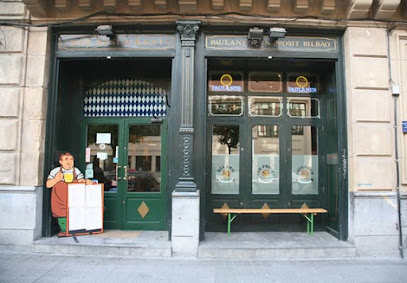
La Olla jatetxea
Discover La Olla Jatetxea in Bilbao: A vibrant restaurant serving traditional Basque pintxos and tapas in a warm, welcoming atmosphere.
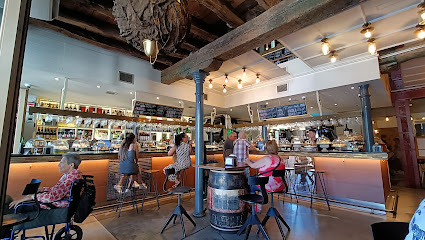
La Gavilla Bilbao
Experience the flavors of Basque cuisine at La Gavilla Bilbao - a top grill destination offering delicious grilled dishes and a welcoming atmosphere.
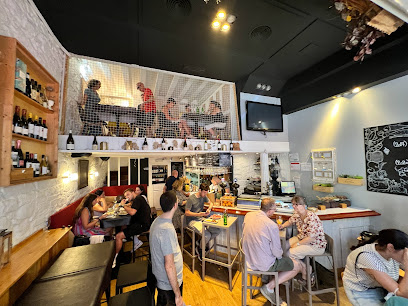
Lasa jatetxea
Discover authentic Basque flavors at Lasa Jatetxea in Bilbao—where tradition meets modernity in every dish.
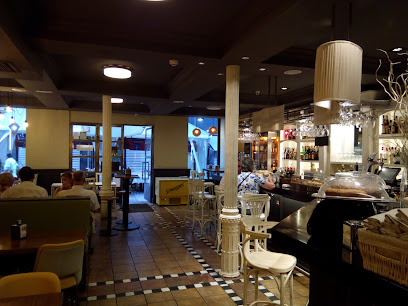
Restaurante Cubita Bilbao
Experience authentic Basque cuisine at Restaurante Cubita Bilbao - where tradition meets innovation in every dish.
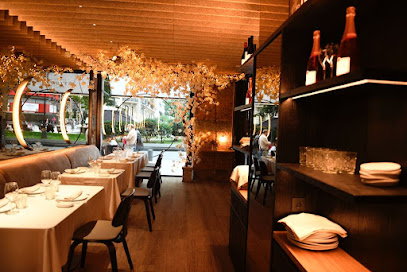
Markets, malls and hidden boutiques
Zubiarte merkataritza-zentroa
Discover the vibrant shopping experience at Zubiarte, Bilbao's premier mall with diverse shops, dining, and entertainment options.
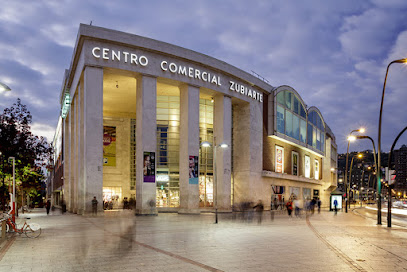
Shimai
Explore the latest in women's fashion at Shimai, a chic clothing store in the vibrant heart of Bilbao, perfect for stylish tourists.
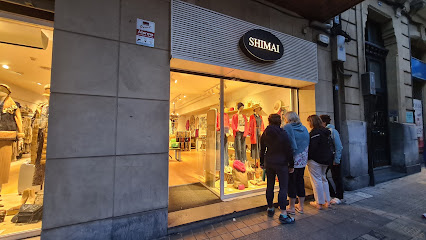
BELAZA GALLERY Bilbao
Experience a unique blend of modern and vintage fashion at Belaza Gallery, Bilbao's premier boutique for stylish clothing and accessories.
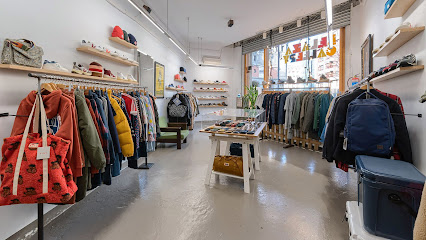
serie_be
Discover unique fashion at Serie Be, a trendy clothing and shoe store in the heart of Bilbao's vibrant Ibaiondo district.
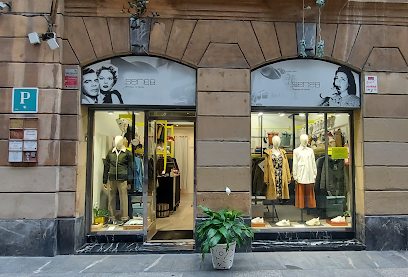
Sorpréndele, regalos originales
Explore Sorpréndele, the charming gift shop in Bilbao, offering unique Basque souvenirs and original gifts that capture the spirit of the region.
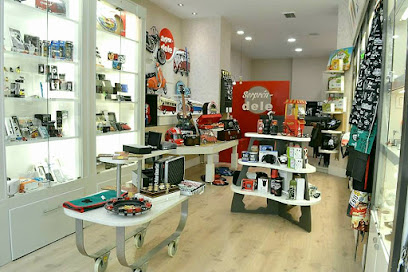
ELEI URBAN Moda Bilbao
Unleash your style at ELEI URBAN Moda Bilbao – your ultimate destination for trendy clothing and fashion accessories in the heart of Bilbao.
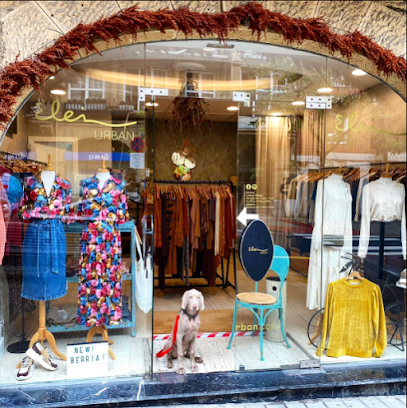
BASQ LORE - Bisutería y souvenirs
Explore BASQ LORE in Bilbao for unique costume jewelry and fashion accessories, capturing the essence of local craftsmanship and culture.
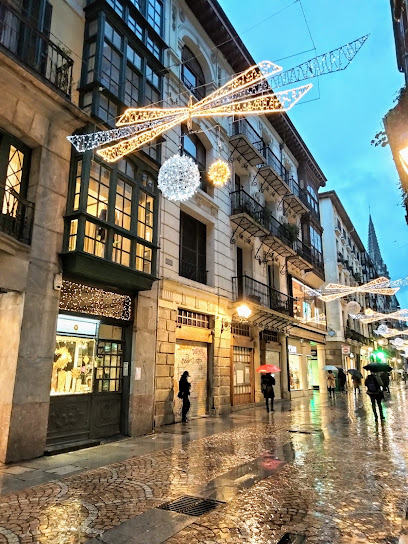
The BILBAO store
Explore The BILBAO Store for unique souvenirs, exquisite handicrafts, and beautiful jewelry that embody the spirit of the Basque Country.
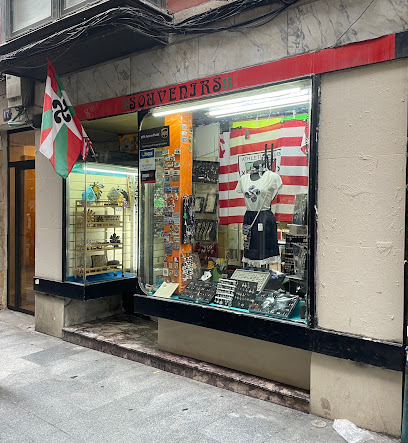
Mucho y de todo
Explore Mucho y de todo in Bilbao for unique gifts and local artisan crafts that capture the essence of Basque culture.
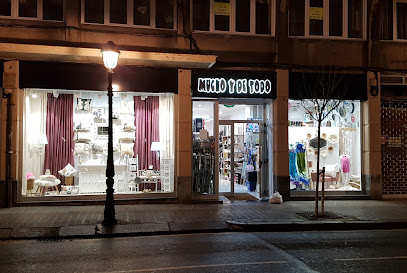
Falstaff bilbao
Discover unique fashion trends and stylish apparel at Falstaff Bilbao, a must-visit clothing store in the vibrant Abando district.
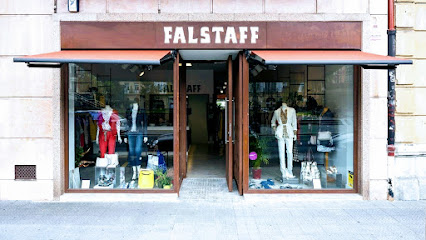
Essential bars & hidden hideouts
La Viña del Ensanche
Discover the flavors of Basque cuisine at La Viña del Ensanche, where traditional tapas meet innovative culinary artistry in the heart of Bilbao.
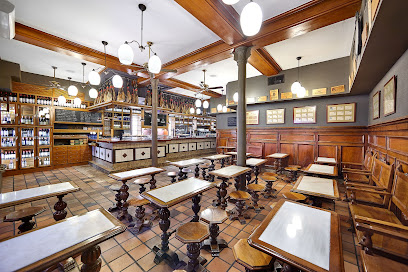
La Antigua Cigarrería
Discover Bilbao's nightlife at La Antigua Cigarrería, where exquisite cocktails and vibrant ambiance await in the heart of the city.
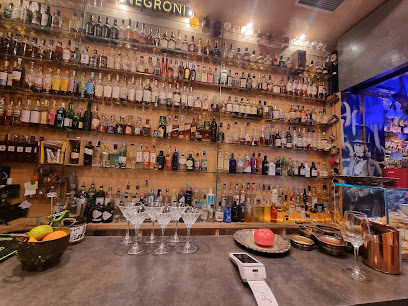
Sir Winston Churchill Pub
Discover the lively charm of Sir Winston Churchill Pub in Bilbao, where cocktails and camaraderie create unforgettable nights.
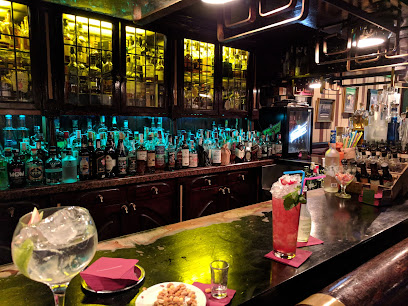
Kubrick Bar Bilbao
Discover the lively Kubrick Bar in Bilbao – a perfect blend of delicious cuisine, live music, and vibrant nightlife.
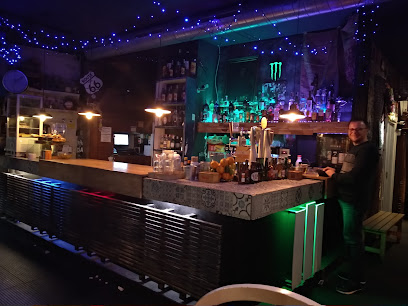
Pub El Alambique
Discover the lively ambiance and delightful drinks at Pub El Alambique, a must-visit venue in the heart of Bilbao.
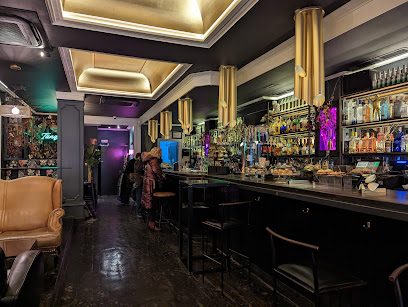
Penguin Bar
Experience the lively atmosphere and diverse drink selection at Penguin Bar, the heart of Bilbao's vibrant nightlife.
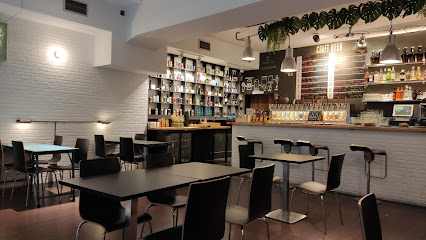
Gin Fizz Cocktail Bar
Discover the essence of Bilbao's nightlife at Gin Fizz Cocktail Bar, where innovative cocktails meet a vibrant atmosphere.
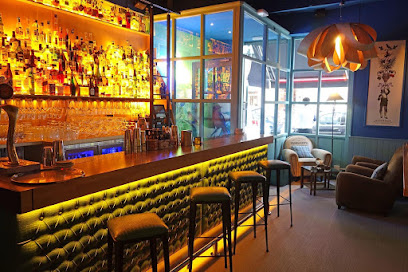
Abadía del Gin&Tonic
Discover the best gin and tonic experience in Bilbao at Abadía del Gin&Tonic - a lively bar perfect for socializing and enjoying crafted cocktails.
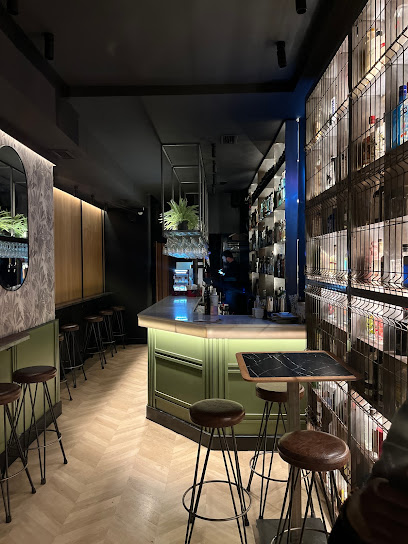
La Barmacia Bilbao - Copas y cóctel
Discover La Barmacia Bilbao, the perfect spot for cocktails and tapas in the heart of the city's vibrant nightlife.
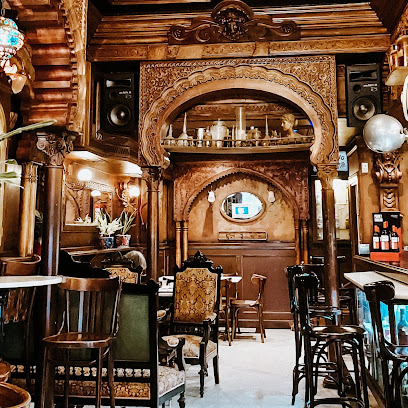
Bernardo Cocktail Bar
Experience the vibrant nightlife of Bilbao at Bernardo Cocktail Bar, where expertly crafted cocktails and a lively atmosphere await.
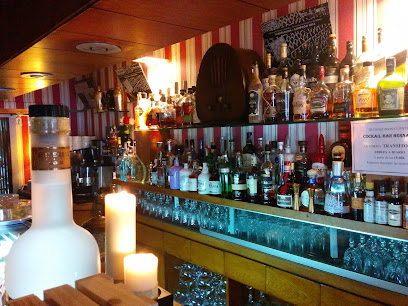
Local Phrases
-
- HelloHola
[oh-lah] - GoodbyeAdiós
[ah-dee-ohs] - YesSí
[see] - NoNo
[noh] - Please/You're welcomePor favor/De nada
[por fah-vor/deh nah-dah] - Thank youGracias
[grah-thyahs] - Excuse me/SorryPerdón/Lo siento
[pehr-dohn/loh see-ehn-toh] - How are you?¿Cómo estás?
[koh-moh ehs-tahs] - Fine. And you?Bien. ¿Y tú?
[byehn. ee too] - Do you speak English?¿Hablas inglés?
[ah-blahs een-glehs] - I don't understandNo entiendo
[noh ehn-tyehn-doh]
- HelloHola
-
- I'd like to see the menu, pleaseMe gustaría ver la carta, por favor
[meh goos-tah-ree-ah behr lah kahr-tah, por fah-vor] - I don't eat meatNo como carne
[noh koh-moh kahr-neh] - Cheers!¡Salud!
[sah-lood] - I would like to pay, pleaseMe gustaría pagar, por favor
[meh goos-tah-ree-ah pah-gahr, por fah-vor]
- I'd like to see the menu, pleaseMe gustaría ver la carta, por favor
-
- Help!¡Ayuda!
[ah-yoo-dah] - Go away!¡Vete!
[veh-teh] - Call the Police!¡Llama a la Policía!
[yah-mah ah lah poh-lee-see-ah] - Call a doctor!¡Llama a un médico!
[yah-mah ah oon meh-dee-koh] - I'm lostEstoy perdido/a
[ehs-toy pehr-dee-doh/dah] - I'm illEstoy enfermo/a
[ehs-toy ehn-fehr-moh/dah]
- Help!¡Ayuda!
-
- I'd like to buy...Me gustaría comprar...
[meh goos-tah-ree-ah kohm-prahr...] - I'm just lookingSolo estoy mirando
[soh-loh ehs-toy mee-rahn-doh] - How much is it?¿Cuánto cuesta?
[kwan-toh kwehs-tah] - That's too expensiveEsto es demasiado caro
[ehs-toh ehs deh-mah-syah-doh kah-roh] - Can you lower the price?¿Puedes bajar el precio?
[pweh-dehs bah-hahr ehl pree-syoh]
- I'd like to buy...Me gustaría comprar...
-
- What time is it?¿Qué hora es?
[keh oh-rah ehs] - It's one o'clockEs la una en punto
[ehs lah oo-nah ehn poon-toh] - Half past (10)Las diez y media
[lahs d'yehs ee meh-dee-ah] - MorningMañana
[mah-nyah-nah] - AfternoonTarde
[tahr-deh] - EveningNoche
[noh-cheh] - YesterdayAyer
[ah-yehr] - TodayHoy
[oy] - TomorrowMañana
[mah-nyah-nah] - 1Uno
[oo-noh] - 2Dos
[dohs] - 3Tres
[trehs] - 4Cuatro
[kwah-troh] - 5Cinco
[theen-koh] - 6Seis
[sehs] - 7Siete
[syeh-teh] - 8Ocho
[oh-choh] - 9Nueve
[nweh-veh] - 10Diez
[dyehs]
- What time is it?¿Qué hora es?
-
- Where's a/the...?¿Dónde está el/la...?
[dohn-deh ehs-tah ehl/lah] - What's the address?¿Cuál es la dirección?
[kwal ehs lah dee-rehk-syon] - Can you show me (on the map)?¿Puedes mostrarme (en el mapa)?
[pweh-dehs mohs-trar-meh (ehn ehl mah-pah)] - When's the next (bus)?¿Cuándo es el próximo (autobús)?
[kwan-doh ehs ehl proh-ksy-moh (ow-toh-boos)] - A ticket (to ....)Un billete (a ...)
[oon bee-yeh-teh (ah ...)]
- Where's a/the...?¿Dónde está el/la...?
History of Ensanche
-
The Ensanche neighbourhood was conceived in the mid-19th century as part of Bilbao's urban expansion plan, driven by industrial growth and an increasing population. The city’s original medieval layout was becoming insufficient to accommodate the burgeoning populace, leading to the design of a new grid plan that would later become known as Ensanche. This development marked a pivotal shift from Bilbao's confined old town to a more modern urban landscape.
-
By the late 19th and early 20th centuries, Ensanche experienced a surge in architectural development. Influenced by the European architectural styles of the time, the neighbourhood saw the construction of grand buildings adorned with elaborate facades and decorative details. Notable architects like Francisco de Cubas and Ricardo Bastida contributed to the rich architectural tapestry of Ensanche, which includes iconic structures such as the Plaza de Moyua and the Gran Via.
-
As Ensanche developed, it became a cultural and commercial hub in Bilbao. The area was home to numerous theaters, shops, and cafes, catering to the city's affluent classes. The establishment of cultural institutions, including the Bilbao Fine Arts Museum in 1914, further solidified Ensanche's reputation as a center for art and culture, showcasing both local and international works.
-
The Industrial Revolution had a profound impact on Ensanche, as the region became a vital link between the port and the surrounding industrial areas. The influx of workers and businesses led to rapid urbanization, and the neighbourhood adapted to accommodate the needs of a modern industrial city. This transformation brought about significant socio-economic changes, as the population diversified and new social dynamics emerged.
-
In the late 20th and early 21st centuries, Ensanche faced challenges typical of urban areas, including urban decay and the need for revitalization. However, extensive renovation projects have since revitalized the neighbourhood, blending its historical heritage with modern amenities. Initiatives to enhance public spaces, improve infrastructure, and promote sustainable tourism have positioned Ensanche as a vibrant area that honors its historical roots while embracing contemporary life.
Ensanche Essentials
-
Ensanche is centrally located in Bilbao and easily accessible from various neighborhoods. You can reach Ensanche by metro (Line 1 and Line 2), with stops at Abando and San Mames stations. If you're coming from the airport, the Bizkaibus A3247 service connects Bilbao Airport to the city center, with a stop near Ensanche. Additionally, local buses operate frequently across the city, making it simple to reach Ensanche from areas like Casco Viejo or Indautxu.
-
Ensanche is well-connected by public transport, including metro, buses, and trams. The Bilbao tram system has stops throughout Ensanche, providing easy access to various attractions. Consider purchasing a Bilbao Bizkaia Card, which offers unlimited travel on public transport and discounts at local attractions. Biking is also popular, with numerous bike lanes and rental services available, allowing you to explore the area at your own pace.
-
Ensanche is generally a safe neighborhood for tourists, but standard precautions should be taken. Avoid poorly lit areas at night and keep your belongings secure. Pickpocketing can occur in crowded places, particularly around major tourist attractions. Although crime rates are low, areas like some back streets near the river can be less secure at night, so it's best to stay vigilant.
-
In case of an emergency, dial 112 for police, medical, or fire assistance. The nearest hospital, Hospital de Basurto, is accessible by metro and bus. It is advisable for travelers to have travel insurance that covers medical emergencies. Pharmacies are available throughout Ensanche for minor health issues, and many are open late.
-
Fashion: Do dress comfortably yet respectfully, especially when visiting churches. Don't wear overly casual or beachwear in urban settings. Religion: Do be mindful of local customs and dress appropriately when entering religious sites. Public Transport: Do offer your seat to elderly passengers. Don't talk loudly or eat on public transport. Greetings: Do greet locals with a friendly 'Hola' and a smile. Don't forget to say 'Gracias' when someone helps you. Eating & Drinking: Do try pintxos (Basque tapas) at local bars. Don't waste food, as sharing is an important social custom.
-
To experience Ensanche like a local, visit the Mercado de la Ribera for fresh produce and local delicacies. Enjoy a leisurely stroll through the nearby Parque de Doña Casilda, where you can relax amidst beautiful gardens. Try to catch a local football match at San Mames Stadium for an authentic Basque experience. Engage with local shop owners; they often share great insights and recommendations. Additionally, look for lesser-known pintxos bars, which may offer more unique and authentic flavors compared to those frequented by tourists.
Trending Landmarks in Ensanche
Nearby Cities to Ensanche
-
Things To Do in Santander
-
Things To Do in San Sebastián
-
Things To Do in Pamplona
-
Things To Do in Burgos
-
Things To Do in Valladolid
-
Things To Do in Lourdes
-
Things To Do in Oviedo
-
Things To Do in Huesca
-
Things To Do in Zaragoza
-
Things To Do in Bordeaux
-
Things To Do in Segovia
-
Things To Do in Madrid
-
Things To Do in Avila
-
Things To Do in Salamanca
-
Things To Do in Lleida













